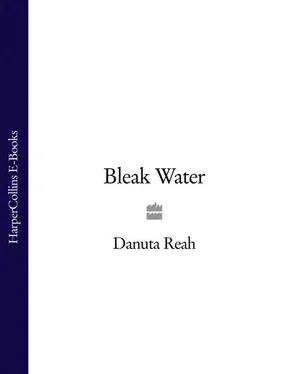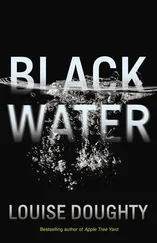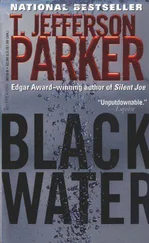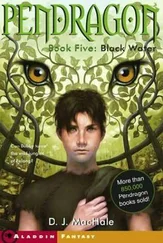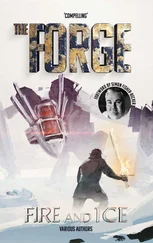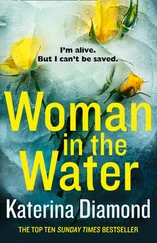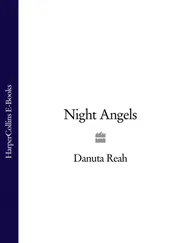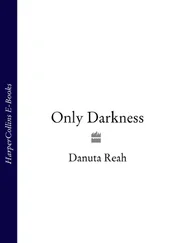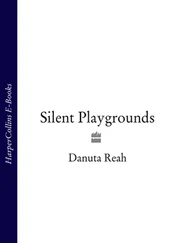‘Eliza Eliot.’
‘Thank you,’ he said.
She looked back along the path to the new grave, the dark headstone beside it. There was a man standing there now looking down at the stone. He looked as if he was reading the inscription. He stood with his hands in his pockets, hunched up against the cold. His cloth jacket looked too thin for the winter day. She couldn’t make out his face, but there was something familiar about him. Someone from college? Someone Maggie had worked with?
Roy Farnham came up beside her and they walked together towards the cemetery gates. ‘I thought there would be more people here,’ he said.
‘Maggie lost touch with her friends.’ Or her friends lost touch with her in the aftermath of Ellie’s death.
‘I couldn’t help her,’ he said. Eliza looked at him. ‘She wanted guarantees that Fraser would stay in prison.’
‘Do you think he’ll get out?’
He stopped and studied the distance while he thought. The cemetery was on one of the highest points of the city, and the hills ran away to the west, a cascade of roofs and winter trees. ‘I looked it up after she came to see me. I don’t know, to tell you the truth.’
They stood in silence for a moment, then Eliza said, ‘It was good of you to do that.’
He shrugged. ‘It wasn’t much.’ He looked down at her again. ‘You’re local?’ He clearly wasn’t, but she couldn’t place his accent.
‘No, but I was at art school here. I came back last summer.’
‘What brought you back?’
‘I…’ Suddenly Eliza felt reluctant to go on. He was looking at her, waiting. ‘I came to work for the Second Site Gallery.’
He raised his eyebrows. ‘Down by the canal? Where…?’ Where Ellie’s body had been found six months after her disappearance, concealed in deep undergrowth by the towpath, miles away from the place she had last been seen.
‘Yes,’ Eliza said. He didn’t say anything, just kept on looking at her. ‘I’d better be going,’ she said. ‘We’re really busy. There’s a big exhibition next week and there’s a preview on Friday.’
‘Oh yes,’ he said, with polite interest. Then he looked at her more closely. ‘I read something about that.’
The exhibition had attracted a lot of publicity for a new, provincial art gallery. ‘It’s Daniel Flynn’s latest work,’ she said. For a moment, she was back in the streets of Madrid. It was early summer, and the Puerta del Sol was suffused with light. Daniel was laughing at something she had said. Who else had been there? She couldn’t remember. There had been a group of them sitting outside the café watching the Madrileños’ leisurely drift towards the afternoon. Daniel.
She brought her mind back to the present. ‘You must come and see it.’
‘I’ll look out for it,’ he said. A careful nonpromise. ‘What is it?’
‘It’s a series of interpretations of one of Brueghel’s paintings.’ She looked at him. ‘It’s called The Triumph of Death ,’ she said.
She looked back towards the graves, but the man who had been standing there was gone.
As the day drew on, the sky clouded over and an icy mist began to form, softening the edges of the new grave, black and mounded, a long, narrow rectangle in the grass. The flowers, still in their Cellophane, were piled up on the earth. The chapel of rest was locked up and silent, the business of the day over.
A young girl stood by the grave. Her clothes were summery, unsuitable for the winter weather, light blue jeans, cut off above the ankle, and a sweatshirt with a sequinned pattern across the front, flowers and birds. She was thin, with fragile wrists and ankles, narrow hips and back.
The knees of her jeans were muddy and she had the dirty hands and face of a child who had been playing. The dirt was smeared across her face, and she rubbed tears away with her hands. Then she turned back towards the cemetery gate, her ankles turning as her feet stumbled on the uneven path. She gave an angry shout, and began to run away from the graveside and the burial ground and on to the road where her shoes clattered on the Tarmac.
The chapel of rest was silent in the winter-dead landscape. Most of the graves were old, with mossy stones from which the writing had long ago faded into indecipherability. Next to the newly dug earth, overgrown by the grass and an encroaching laurel, the polished granite of the more recent grave stood out. There were flowers on this grave too, but it was as if the wind had caught them and scattered their petals in a splash of dark red against the black of the earth, a freak wind that had ripped the flowers apart, and strewn their petals across this one grave. Ellie. Love…as strong as death.
The frozen stillness of the morning thawed to rain, chill, persistent and driving. Eliza turned up the heater in her car as her wipers struggled to keep her view clear. The windscreen fogged, and she had to wind her window down a little to clear it. Her hat was pulled down over her ears, and her scarf muffled round her face, but she still felt cold. It was as if the hour spent in the chapel of rest and standing by the frozen grave had chilled her to the marrow, and it was going to take time for the warmth to creep back in.
The dullness of the afternoon depressed her as she drove back into the centre of the city in a slow-moving line of traffic. The rain splashed up from the road, and she speeded up her windscreen wipers to give herself some chance of seeing ahead. The traffic shuffled forward a couple of yards and stopped again.
The grey of the weather carried echoes of the chill graveyard, and she thought of Maggie alone in the dark, under the ground, dead and gone. And Ellie, with all her bright promise. She wanted to be back in the summer of Spain, or failing that, home in the warmth and colour of her flat, or in the spaciousness of the gallery. The traffic inched past the bus station and then she was on to the confusion of the massive Park Square roundabout. She switched lanes with the expertise of practice, ignoring the impatient horn that sounded behind her, and drove down past the new developments of the canal basin and along the road where the old industrial buildings still stood, unchanged and deserted.
The gallery and Eliza’s flat were housed in one of the old warehouses beyond the expensive and redeveloped canal basin that seemed to be the demarcation line between new Sheffield and the promise of prosperity, and old Sheffield, upon whose flesh the beneficiaries of industrial wealth had fed, and where now there were only the decaying bones. At night, when the gallery was empty, Eliza sometimes felt as isolated as if she were living on a remote island in the Shetlands rather than in the centre of a massive urban sprawl.
She drove past the hotel that seemed to mark the end of the gentrified area and under the bridge to the road that led along the canal side. The change was abrupt. The brickwork on this side of the bridge was crumbling, the surface stained with the water that ran from the broken fall-pipes. Beyond the bridge, there was a narrow alleyway, a cul-de-sac, where old household rubbish was dumped and then left to rot.
She took the turning that led to the canal road and drove past the chained and padlocked gateways of the old loading bays and the canal company offices. She was at the gallery now, the old warehouse looking dark and forbidding in the fading light. It had a mellow brick frontage and arched windows that gave balance and symmetry, and made the building beautiful in the daylight, even before its restoration.
Eliza locked the car and set the alarm. This was an area where you had to be careful. Her mind was already moving away from the events of the morning, and towards the work she still had to do. She noticed that Jonathan Massey’s car was parked at the side of the old warehouse.
Читать дальше
